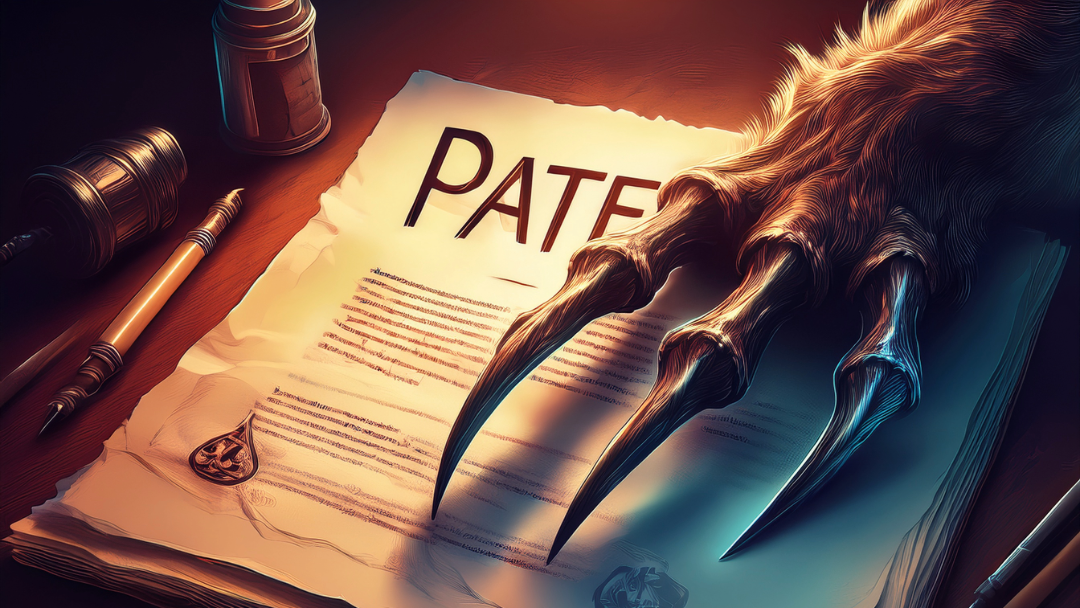
Due to inadequacies in detecting noxious gases, miners learned to bring small birds into the mines, where the death of a canary was a warning that something was wrong.
The American Republic’s capitalist economy operates with many moving parts, involving banks, capital, liquidity, and a host of integrated institutions, all working efficiently and sometimes ruthlessly. But, add a law here and restrictions there, and the effects may reverberate in unknown ways. Likewise, political rancor and attacks on institutions cause confusion, consternation, and uncertainty. The health of our economy and society, just as the air in the mines, is difficult to gauge. Adding a canary here could help us understand when the strong yet oddly delicate economic and societal balances go askew.
In addition to Capitalism, many Constitutional rights are being questioned and undermined, such as freedom of speech, with the threat of radical change ever-present. Basic American rights seem under siege.
The Patent System is a Tool for Societal Advancements
A useful canary we can use to test our nation’s health is the American patent system, a microcosm of the national macrocosm. American ingenuity and its inventors were once revered. Not long ago, inventors had valuable property rights and could enforce their patents against infringers. However, just as our society is now divided, American inventors have been undermined and their valuable rights taken from them by copyists and government officials.
Since the rights of inventors have been curtailed dramatically over the last two decades, a patent canary is a useful analogy to other social paradigms being attacked and perhaps a harbinger of things to come in these broader sectors. For example, famous inventors are now ridiculed as being nothing more than evil and rapacious trolls, diminishing the often incredible accomplishments made and undermining the historical significance of their technological advancements, rewriting history. Akin to tearing down the statues of the past.
Even though inventors have new ideas, some of which change our world for the better, they often need encouragement and assistance to make their raw ideas real. Finding funding for your company or licensing one’s invention to others are normal post-invention activities. Patents are the chief means to attract investors, a currency of business.
The patent system extolled by our Founders gives a limited, exclusive right to inventors. This enables a head start advantage for twenty years to exclude others, after which the idea enters the public domain for everyone to use and build upon. Using this incentive, the patent system is often the midwife to many societal advancements. These exclusive rights can be enforced against others copying or infringing the invention− much like stopping others from trespassing your property.
Our Founders expressly wanted to encourage innovation. The Constitution explicitly outlines patent rights, whereas all other rights, such as freedom of the press, are in the attached Bill of Rights. George Washington, in his short inaugural address, stressed patents also. Our Founders, however, although quite wise, did not envision the rise of mega-corporations and their adverse influence on the patent system, warping the Founders’ will to democratize the patent system for all Americans. However, with the rise and extraordinary value of many current technologies, some corporations ignore the rights of inventors and just copy.
The Loss of the Inventor
Indeed, many high-tech companies wish to eliminate the patent system entirely or otherwise defang the usage of any pesky small inventor exclusive rights against them. Through millions in lobbying, along with some incredibly short-sighted Supreme Court cases and legislation, the rights of patentees greatly diminished compared to those of a generation ago.
Whereas the small inventor community was once a powerful bulwark against corporate legislative measures, this lobbying and corrupt influence have been all too effective. Indeed, many companies now openly engage in so-called “efficient infringement” to take any technology they want, with no compensation to the acknowledged patent owner. This theft is advocated in the industry as standard practice now, and when patentees sue, they are simply labeled “patent trolls.” And we complain about China for their business practices.
Not all American inventors make significant inventions. Many inventions are impractical or even silly. However, as even Eric Schmidt of Google has recognized, the majority of the “big” inventions that change our lives come from small inventors or academic communities, not corporations. Non-paradigmatic advances are easier to make outside a paradigm. As Apple used to say, you need to “Think Different.” Yet, despite this, the legal landscape has shifted to penalize these small innovators, polluting the wellspring of creation.
From the removal of the “automatic” patent injunction right (2006), the introduction of an abstruse abstraction text by the Supreme Court (2014), and the inventor nightmares caused by new and controversial administrative law proceedings in the United States Patent & Trademark Office (2011), small inventors’ rights have been crippled, undermining investment for new companies. Chaos has ensued by attacking patentees’ property rights, and the patent system’s purpose has declined.
In response to this serious diminution in the value of patents, some companies resort to trade secret laws, which offer different protections. Just as many criminals and authorities flout the law, many corporations have little or no respect for our patent system, the patent paradigm be damned. There are, of course, exceptions to this, but the exceptions in no way swallow the rule.
Our Society and the American way of life and business are threatened, just as other constitutional rights are. With the Founders being de-mythicized, their personal flaws exposed and pilloried, these ad hominem attacks are also meant to undermine the ideals they fought for and espoused, including patents. Clearly, some practices of the past were and are bad, but change is built into the fabric of our Constitution.
The U.S. patent system once was the envy of the world and a big factor in our success as a nation over the last 234 years. But in the previous 20 years, it has been seriously weakened, and to the small inventor community demolished. The canary is gasping for breath.
Raymond Van Dyke is an IP/Patent Attorney and Educator. In his practice, he helps a variety of clients in their IP matters. He specializes in patent and trademark matters in various technologies, litigation, licensing, and procurement. After being a partner in big firms, he started his own IP consultancy in Washington, DC, with diverse domestic and international clientele and technologies, handling matters at the USPTO, Federal Circuit, and local State and Federal courts. He is an Adjunct Professor at George Washington University and teaches IP courses for engineers, business people, and other professionals at the University of Maryland and George Mason University; also teaches about the history and philosophy of IP, the history of technology, famous inventors and deals, etc. He has also taught at Southern Methodist University, American University, and across the world. Ray also teaches at NIH and other institutions. He is the Senior Vice President of Special Events at LES and Chair of the LES DC Chapter; an AIPLA Fellow and former Chair of a number of Committees; Chair of the Montgomery County Bar Association IP Section, former Board Member of the DC Chapter of the ACM, former Board Member of ITechLaw (Computer Law Association); and continues his involvement in IPO, the MSBA, AIPPI, ABA, BIO, IEEE and other legal and technical organizations. Ray got his BS and MS in Computer Science and a law degree from the University of North Carolina at Chapel Hill. He is licensed to practice in DC, MD, NY, NJ, and TX, as well as the USPTO, and is admitted to the U.S. Supreme Court, Federal, Second, Third, Fourth, and Fifth Circuit Courts, and a number of District Courts, Court of International Trade and Federal Court of Claims. Ray also continues in his efforts to fight on behalf of the small inventor community in protecting the principles of the patent system.






